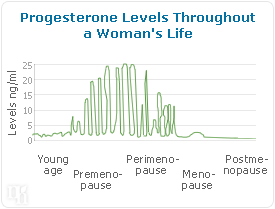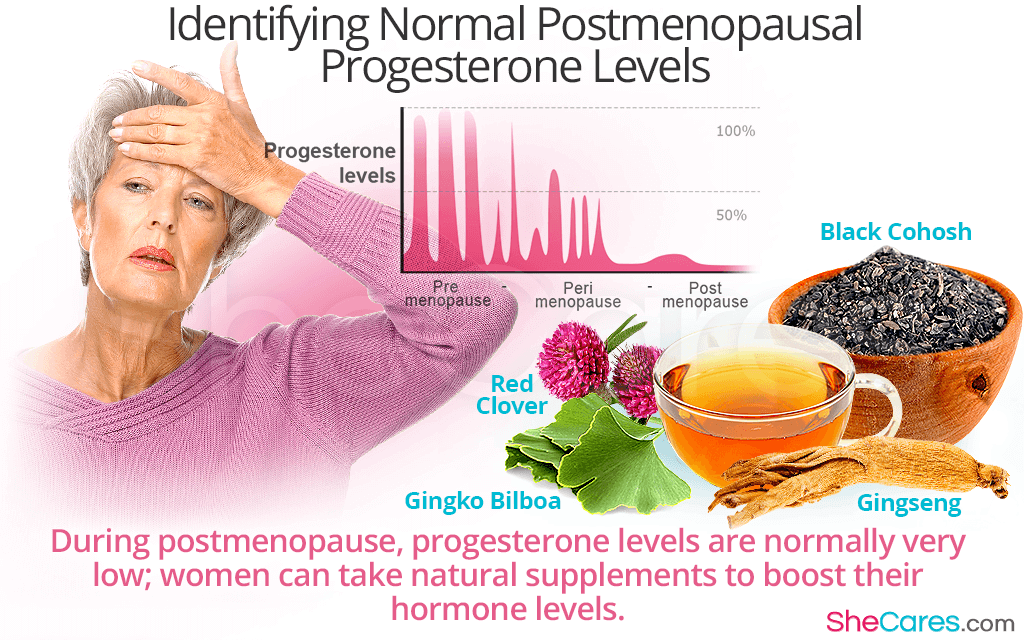Progesterone is a hormone that plays a major role in reproduction, so progesterone levels drop during postmenopause, because the reproductive years are complete. Once postmenopause is reached, women are no longer experiencing fluctuations of progesterone and estrogen hormones, so their signs and symptoms of hormonal imbalance are usually reduced considerably. Nevertheless, symptoms may still be present during postmenopause, and women need to be vigilant against this, since it could add disruptions to their life.
Read on for more about progesterone levels during postmenopause, how they affect the body, and available treatment options.
What Is Postmenopause?

Postmenopause is the stage that women enter around their early sixties. It follows menopause, and during this phase, menstruation is no longer occurring and the ovaries no longer release eggs. During postmenopause, progesterone levels are normally very low, roughly 1ng/ml.
Progesterone levels can leave women suffering from unpleasant signs and symptoms. For example, women may commonly experience vaginal dryness, weight gain, and hot flashes.
Why Are Progesterone Levels Low during Postmenopause?
They are typically low because women are no longer in their reproductive stage. Thus, their bodies are no longer preparing for pregnancy, this means that the same quantity of progesterone and estrogen hormones is not required. Progesterone levels are low because women no longer need a large quantity of progesterone hormones in their systems.
How Can the Side Effects of Low Progesterone Levels Be Treated?
If women are experiencing the side effects of low progesterone levels, they should ensure they are living a healthy lifestyle and have a healthy body. There are a number of things that women can do in order to increase their overall health, for example:

- Eat a healthy and varied diet filled with fruits, vegetables, and whole grain fibers
- Exercise regularly; it is recommended to do half an hour a day, five times a week
- Sleep between 7 and 8 hours a night in order to wake feeling refreshed
- Cut down on alcoholic beverages
- Avoid stressful activities
- Don't smoke
Alternatively, women can take natural supplements to boost their estrogen and progesterone hormone levels even during postmenopause. It is important that women have balanced hormone levels, natural supplements can boost the body's production of hormones, for example:
- Black cohosh
- Gingseng
- Gingko biloba
- Red clover
All these herbs can be extremely effective helping women who suffer from low progesterone levels. Furthermore, natural supplements that assist with low progesterone levels have fewer side effects than most prescribed medications.
During postmenopause, progesterone levels are normally very low. However, women are still at risk of a hormonal imbalance. Therefore, it is important to maintain a healthy lifestyle to counter any symptom. Click here for more information about progesterone imbalance.



